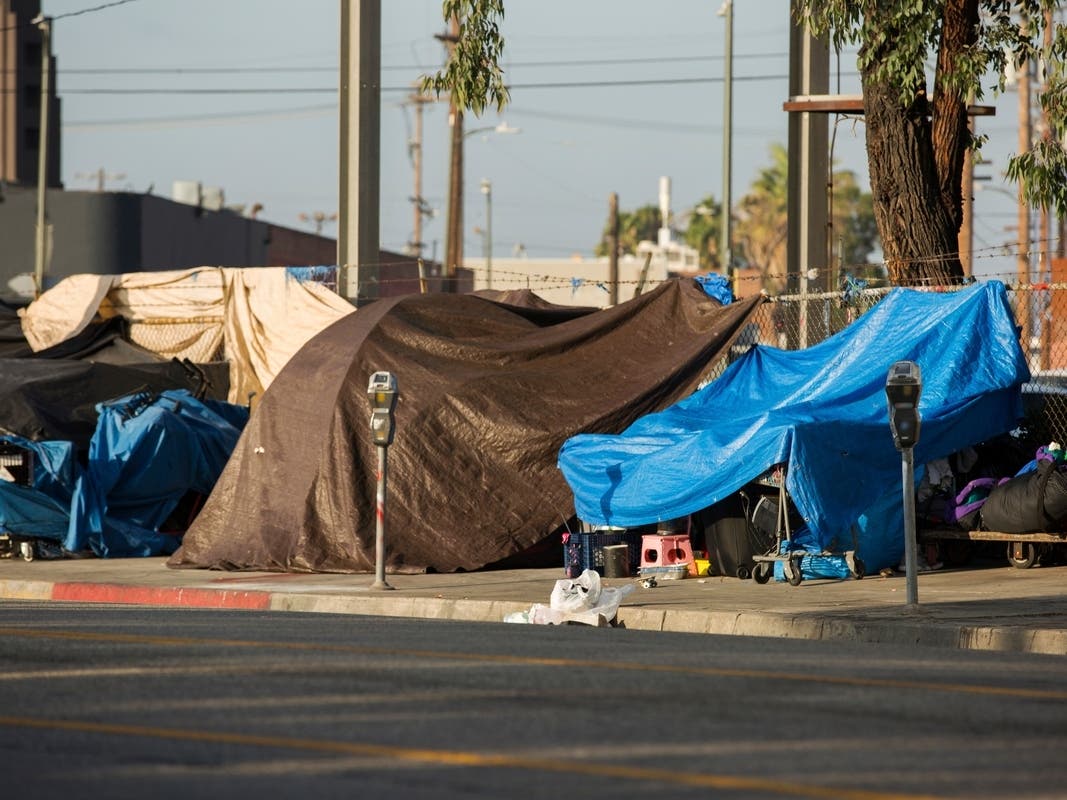Politics & Government
CA Can Ban Homeless Encampments, Supreme Court Rules
The Supreme Court decision greatly affects cities on the West Coast, which have been largely unable to outlaw sleeping in public places

LOS ANGELES, CA — The United States Supreme Court made a decision Friday to allow cities to enforce bans on homeless people sleeping outdoors on the same day data from the 2024 Greater Los Angeles Homeless Count will be revealed.
The Supreme Court decision greatly affects cities on the West Coast where shelter space is short in supply and when the number of homeless people in the country is rising. The case is the most significant to come before the high court in decades on the issue and comes as a rising number of people in the U.S. are without a permanent place to live.
About a third of the homeless population in the United States is in California.
Find out what's happening in Los Angeleswith free, real-time updates from Patch.
The Supreme Court in a 6-3 decision reversed a ruling by a San Francisco-based appeals court that found outdoor sleeping bans amount to cruel and unusual punishment. The ruling of the majority found the 8th Amendment does not apply to outdoor sleeping bans.
"Homelessness is complex. Its causes are many. So may be the public policy responses required to address it," Justice Neil Gorsuch wrote for the majority. "A handful of federal judges cannot begin to `match' the collective wisdom the American people possess in deciding `how best to handle' a pressing social question like homelessness."
Find out what's happening in Los Angeleswith free, real-time updates from Patch.
He suggested that people who have no choice but to sleep outdoors could raise that as a “necessity defense,” if they are ticketed or otherwise punished for violating a camping ban.
A bipartisan group of leaders had argued the ruling against the bans made it harder to manage outdoor encampments encroaching on sidewalks and other public spaces in nine Western states. That includes California, which is home to one-third of the country’s homeless population.
“Cities across the West report that the 9th Circuit’s involuntary test has crated intolerable uncertainty for them,” Gorsuch wrote.
Homeless advocates, on the other hand, said that allowing cities to punish people who need a place to sleep would criminalize homelessness and ultimately make the crisis worse. Cities had been allowed to regulate encampments but couldn’t bar people from sleeping outdoors.
“Sleep is a biological necessity, not a crime,” Justice Sonia Sotomayor said, reading from the bench a dissent joined by her liberal colleagues.
“Punishing people for their status is ‘cruel and unusual’ under the Eighth Amendment,” she wrote in the dissent. ”It is quite possible, indeed likely, that these and similar ordinances will face more days in court."
The case originated in the rural Oregon town of Grants Pass, which appealed a ruling striking down local ordinances that fined people $295 for sleeping outside after tents began crowding public parks. Such bans violate the 8th Amendment of those who are in areas where there are not enough shelter beds, the U.S. 9th Circuit Court of Appeals, which has jurisdiction over the nine Western states, determined in 2018.
National data show the homeless population in the United States grew 12% last, its highest reported level. Rising rents and declining coronavirus pandemic relief assistance have made it more difficult for some to find adequate housing and shelter.
Los Angeles County is home to the largest population of unhoused people in the nation.
The Los Angeles Homeless Services Authority conducted a survey in the area from Jan. 24-26. Results from the 2023 homeless count showed there were 75,518 people experiencing homelessness in the county, and 46,260 in the city of Los Angeles. Those numbers represented increases from the 2022 count, which showed 69,144 homeless people in the county and 41,980 in the city.
The results from the 2024 survey are expected to be higher.
L.A. County Supervisor Janice Hahn said at the time of the release of the results of the 2023 homeless survey they were "disappointing."
"It is frustrating to have more people fall into homelessness even as we are investing hundreds of millions of taxpayer dollars and resources into efforts to bring people inside," Hahn said.
"I appreciate the cities that have stepped up and supported solutions, but these numbers prove that solutions-oriented cities are too few and far between."
City News Service and the Associated Press contributed to this report.